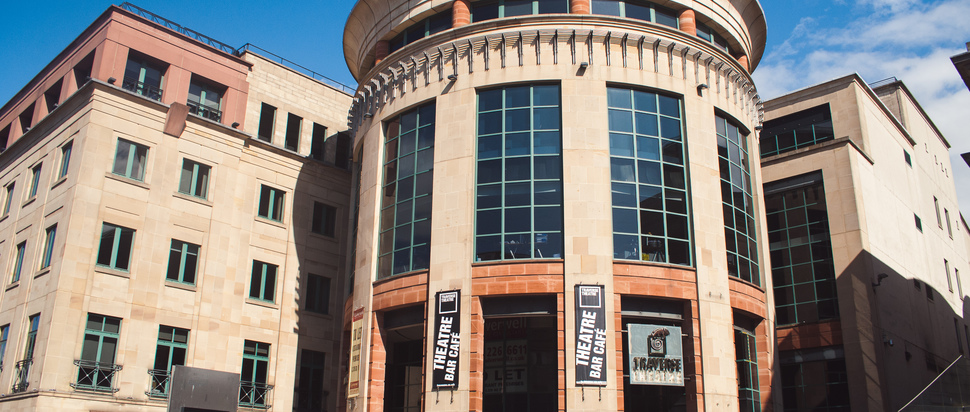Pride Plays @ Traverse Theatre, Edinburgh
Scotland's first LGBTQI+ playwright festival returns to The Traverse, showcasing some excellent new work
When Pride Plays debuted last year, Shift Theatre co-creators Sarah Masson and Connel Burnett were astonished by its success. Now it’s back for a second time around, this year in association with the Traverse Theatre. Set across two nights, Pride Plays terms itself as Scotland’s first LGBTQI+ playwright festival, staging scratch performances followed by chaired discussions with its playwrights and directors.
Kicking things off is We’ll Meet in Moscow by Natalie McGrath, a hauntingly beautiful lesbian narrative through the eyes of a butch spanning a hundred years. Its timeline stands in reference to Moscow’s ban on Pride events for the next century, as decreed in 2012. Assisted only by a script and a lectern, Rebecca Elise delivers each word with intent, skilfully weaving the familiarity of compassion into an otherwise distant setting.
This is followed by the thought-provoking Cocoon, directed by Jo Rush. The piece is a cross-analysis of the emotional and financial impacts of unsuccessful IVF attempts on mothers-to-be. Katie Gartlan-Close’s script places our protagonists on the trapped confines of a moving train, where a solution to their problems may be found in the motherhood doubts of their younger co-passenger. It is a nuanced depiction of an otherwise underrepresented aspect of queer parenthood.
Saturday night somewhat deviates from explicit queerness in its curation, instead giving its playwrights free rein in their approach. Gabriella Sloss’ 787 Blinks explores the notion of male feminism through the lens of politics, everyday relationships and sexual assault. It is powerful yet unassuming in its discussion of consent, forcing the audience to think beyond the safety of the theatre confines and delve into the messiness of everyday life. Sarah Masson’s considered direction is as visual as it is purposeful, sensitively navigating the subject matter.
The second piece of the night is JD Stewart’s Elastic: a reverse-chronological interrogation of ‘modern love’ through key global events. Adam Greene and Reuben Joseph excel in their portrayal of actors pursuing a green-card marriage to obtain US citizenship, delving deeper than the black-and-white stereotypes of media. It is admirable in its complexity, but lacks the affordances of any concrete resolution.
Each evening is concluded by post-show Q&As, chaired by Hannah Bardell MP and Councillor Adam McVey respectively. Offering an opportunity for the audience to raise points of interest about wider themes beyond the performances, the first evening in particular developed into a fascinating discussion about ethical obligations to casting within the arts, specifically in respect to trans representation. Masson and Burnett were quick to outline Shift Theatre’s stance towards this, but seemed to acknowledge their awareness of the issue rather than to outline any definitive policy. There is certainly a great importance in providing a platform through which to debate pressing matters – but raising questions without answering them can only go so far in challenging the status quo.
Showcasing some excellent new writing, and providing a well-intentioned though perhaps undercooked space for debate, Pride Plays make for an important intersection between social justice and the arts.
